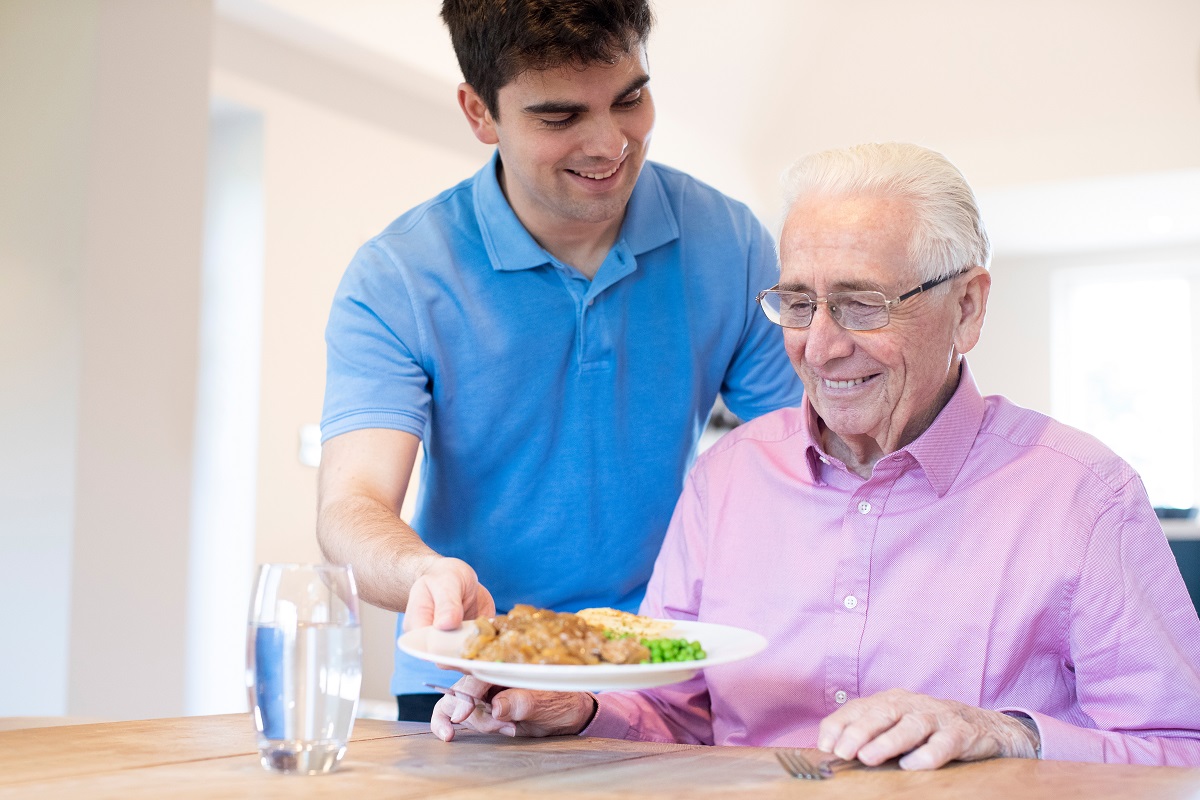Have they got a respiratory infection such as pneumonia and how can you spot and treat it?
You’re bound to be worried if a loved one with dementia develops a respiratory infection such as pneumonia. Here’s what you need to know about the symptoms and treatments
In a nutshell
Pneumonia is a serious respiratory infection that is common in elderly people. It affects those with a weakened immune system or other underlying health conditions such as Alzheimer’s or dementia. There are two basic types of pneumonia – bacterial and viral.
Viral pneumonia
Viral pneumonia tends to occur more in the cold, winter months and can be caused by some of the viruses which are responsible for colds and flu. Viral pneumonia is the most common cause of pneumonia in children and it’s usually mild.
Bacterial pneumonia
This tends to be more common and can be the most serious sort of pneumonia, though it can often be treated with antibiotics. There is now a vaccine to protect against one of the most common forms of bacterial pneumonia which are streptococcus pneumonia.
Elderly people may be at greater risk of bacterial pneumonia if they are already in hospital or living in a care home. Sadly the bacteria which cause this type of so-called ‘hospital acquired’ pneumonia tends to be more resistant to antibiotic treatment.
Good to know
One of the main reasons elderly people develop pneumonia while they’re in the hospital or a care home is because they’re spending too much time lying in bed. The simplest way to reduce the risk is to get them up and moving around as much as possible. Even sitting upright in a chair, (so their lungs can expand more easily, and it’s easier to cough and clear the lungs) could be a good help.
Aspiration pneumonia
Aspiration pneumonia (also called bronchopneumonia) is caused when food or liquid is breathed in and goes down the windpipe rather than the food pipe. Although generally rare, aspiration pneumonia is, unfortunately, more common in people with dementia or Alzheimer’s disease. This is because a condition called dysphagia causes difficulties with swallowing, which can make it more likely for them to breathe food and drink in.
Aspiration pneumonia is sadly one of the most common causes of death amongst people with Alzheimer’s disease.
Did you know? Experts still aren’t sure whether aspiration pneumonia is a form of bacterial pneumonia or if it’s caused by some sort of chemical irritation to the lungs.
Five main symptoms of pneumonia
Here’s what to look out for:
1. A cough that has thick yellow, green, or brownish phlegm – sometimes bloodstained.
2. Difficulty breathing
3. Fever
4. Rapid heartbeat
5. Sweating, shivering and feeling generally unwell
If you’re worried, it’s important to see your GP. Pneumonia can be difficult to diagnose but a doctor can check for any crackling or rattling sounds in the chest (by using a stethoscope). He can also arrange x-rays, blood tests and sputum tests which could identify which bacteria or virus is causing the infection. If it’s caught early, and with the correct treatment, a typical bout of pneumonia lasts around 7-10 days, although people can feel weak and tired for longer.
What happens next?
If the symptoms are manageable you might be able to treat your loved one at home with antibiotics (if it’s bacterial) and plenty of rest.
But if symptoms are more severe, for example, if they’re having difficulty breathing or are very dehydrated, it may be necessary for them to be treated in hospital. For example, they may be given fluids through a drip, or respiratory treatment (such as oxygen). If they have aspiration pneumonia they might be given corticosteroids.
Not getting better?
Unfortunately, older people can sometimes develop complications as a result of pneumonia, particularly if their pneumonia has been serious enough to receive hospital treatment.
The most common complication is pleurisy. This happens when the lining between the lungs and ribcage become inflamed, or when fluid builds up between the lungs and the wall of the chest. Infected fluid needs to be drained away (with the use of a needle or tube).
Three ways to prevent pneumonia
While pneumonia can be treatable and there’s no need to panic if a loved one is diagnosed, it is better for everyone if you can avoid it happening in the first place. Here’s how to reduce their risk:
1. Good hygiene
Make sure you all wash your hands regularly and throw away used tissues straight away.
2. Limit alcohol
If your loved one still enjoys a glass of wine or a pint, that’s fine, but make sure you keep a careful eye on it. Alcohol misuse not only increases their risk of getting pneumonia, it also increases the risk of it being more serious. Alcohol can also cause swallowing difficulties, making aspiration pneumonia more likely.
3. Quit or cut down on smoking
Since smoking damages the lungs it also makes pneumonia far more likely to occur. Smoking decreases your body’s natural ability to fight pneumonia.
Good to know
While eating a healthy diet can’t cure pneumonia, certain foods can be helpful during treatment and recovery. For example, berries, citrus fruits, dark leafy greens and tomatoes are rich in antioxidants which can help the body recover from infections.
A US study of more than 1000 women showed that those who ate diets rich in fruit and veg were less likely to develop upper respiratory infections such as pneumonia.
SHARE
Explore more



